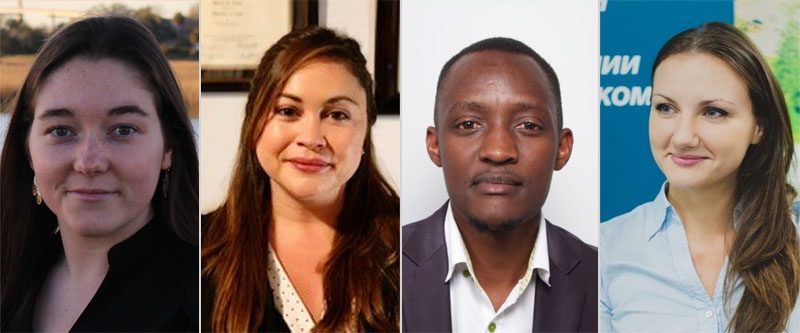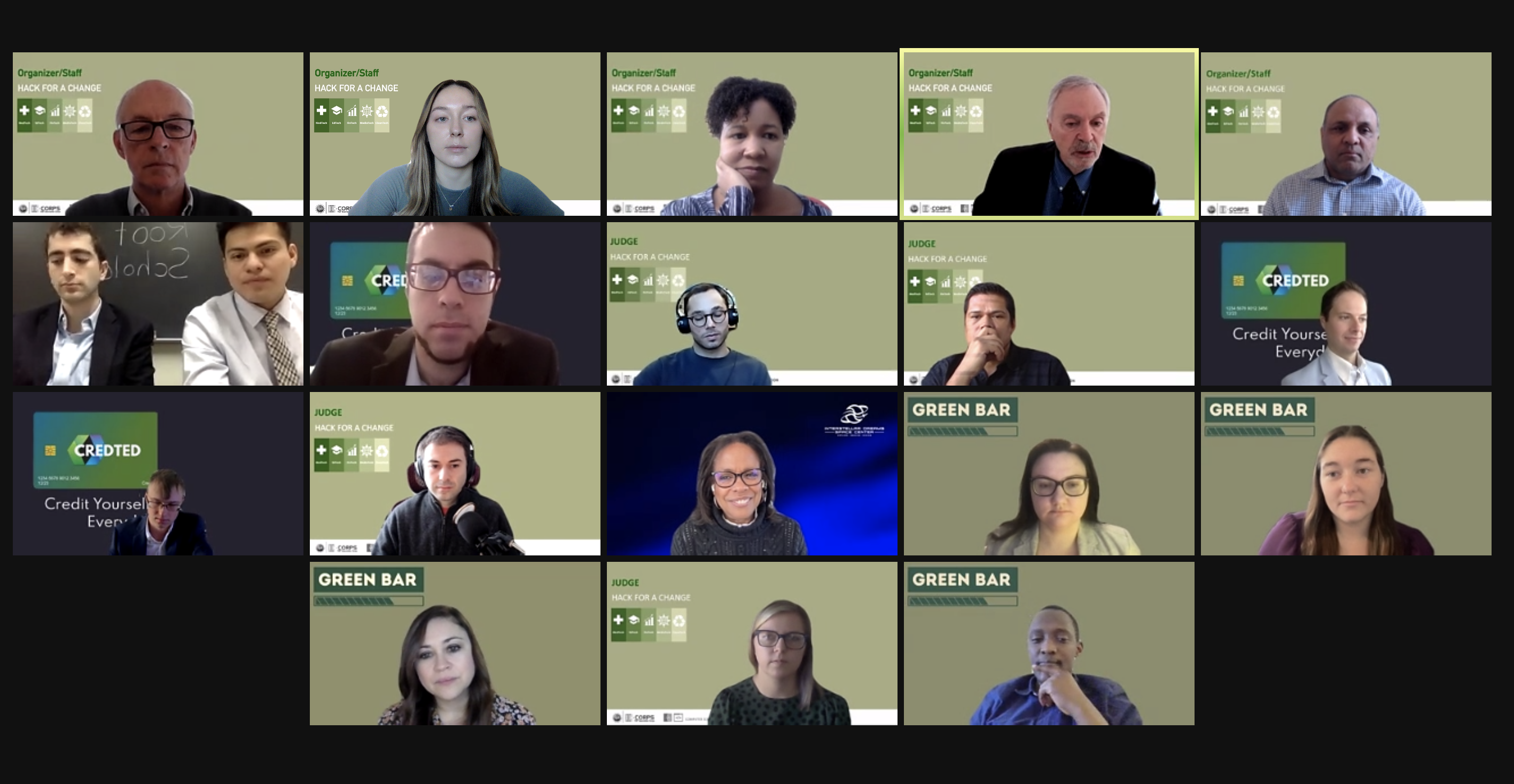
Caroline Colavita
Kogod School of Business Honors Student and Student Administrative Assistant at the American University Center for Innovation
The Second Annual Hack-for-a-Change Hackathon Contest, brought students together to design a solution for an unmet need in health technology (MedTech), education technology (EdTech), finance technology (FinTech), media technology (MediaTech), or environmental technology (CleanTech) markets.
The final teams presented their solutions to a panel of judges, where the $10,000 prize fund was split between the three winning teams—Green Bar (CleanTech), Root Scholar (EdTech), and Credted (FinTech).

Samantha Bendt (SIS and Kogod), Stacey Casas (SIS and Kogod), John Kamoga (Kogod), and Kristina McChesney (CAS)
Green Bar received the first place prize of $5,000 for their idea and architecture to develop a platform that enables green businesses to reach the highest degree of sustainability.
Team members Samantha Bendt (SIS and Kogod), Stacey Casas (SIS and Kogod), John Kamoga (Kogod), and Kristina McChesney (CAS) will use their prize money to continue developing their technology so that they can bring Green Bar to the market.
“We are passionate about addressing issues on climate change and will continue to educate others on how implement greener business practices. We are thankful that our passion and dedication showed through in our work, and we are excited to see where this journey will lead us in the future,” say Casas and Bendt.
Root Scholar received the second place prize of $3,000 for their idea to create a library of programming templates available as an open online community for university faculty across the country. Teammates Evan Pfeffer (Kogod) and Victor Calderon (CAS) enjoyed learning more about the process of bringing a product to the market.
“The competition was an enriching experience,” says Pfeffer. “We started with an amorphous idea and through product exploration interviews, we were able to design a product that meets the needs of our customer base.”
Credted received the third-place prize of $2,000 for their idea to develop an innovative credit card that enables Gen Z to learn personal finance skills while building their credit. Team members Erik Lovece (CAS), Ian Whitehouse (Kogod and CAS), and Eric Baran (CAS) hope to continue to bridge the gap in the financial wellness market for young adults.
The final live presentations were judged by a panel of experienced entrepreneurs, information technology specialists, and Kogod alumni.
It was intense but also such a rewarding experience because it brought us four graduate students together from diverse backgrounds.”
Samantha Bendt & Stacey Casas
"The competition was intense because we only had around five weeks to brainstorm ideas, conduct customer discovery, create a wireframe, and put together a pitch presentation for industry professionals in our CleanTech category,” remark first place teammates Casas and Bendt. “It was intense but also such a rewarding experience because it brought us four graduate students together from diverse backgrounds.”
“This competition was designed by Kogod and CAS faculty to enable interdisciplinary teams of students to work together to identify problems from different perspectives, collaborate to define solutions, and develop a feasible software architecture to implement their ideas,” says Kathryn Walters-Conte, director of STEM partnerships and innovation and the principal investigator and program director for the American University NSF I-CORPS site program.
“Collaborating across disciplines to identify problems and see solutions through different perspectives is the way the world works, and that’s what our top three teams achieved. We are already planning ahead for the 2023 Hack-for-a-Change program.”
Thank you to the mentors and judges that participated in the Second Annual Hack-for-a-Change Hackathon Competition and to the teams at Kogod and the College of Arts and Sciences that made this successful event possible!
